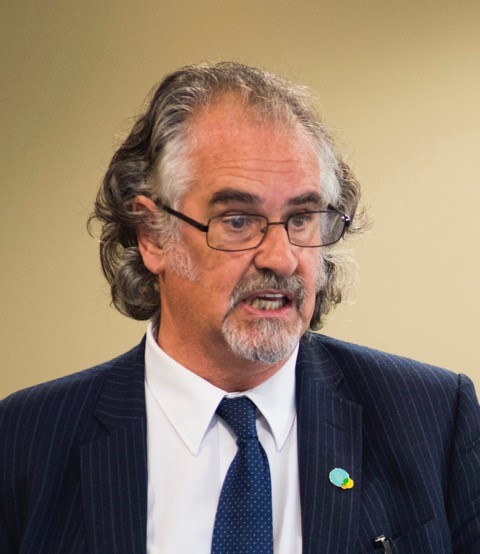Reader’s letter: Gas/electricity/heat pump debate doesn’t cover all the bases

Craig Sanderson
Former Link Group chief executive Craig Sanderson responds to episode 1 of the Scottish Housing News Podcast and the corresponding Black’s Blog via a conversation he had with an old school friend.
Thanks Jimmy Black, Kieran Findlay, David Bookbinder and Teresa Bray for your recent podcast episode and blog on gas boilers and storage heaters. But I’m not sure your discussion covers all the bases.
When I installed a gas boiler it powered not just central heating but also instantaneous hot running water, so I ditched my cold water storage tank.
I was wondering whether ‘transitioning’ means I have to buy and fit (somewhere) another one?
I don’t have the expertise and experience to be able to answer that question - but I know a couple of folks who do.
One of them is Cameron Crawford, my best friend at school, fellow-Partick Thistle fan, former supervisor at Granton Gas Works and subsequently (via involvement in various gas processing activities) head of British Gas’ exploration and production operations in a number of countries, including Tunisia, Egypt, India, Kazakhstan and Australia.
He’s also a Chartered Gas Engineer, is a member of the Energy Institute and has a degree in Applied Chemistry.
He not only responded to my specific query but also offered a number of other foods for thought:
“It’s not a cold water tank you’ll need, it’s a hot water tank. This is one of the reasons I’ve shied away from heat pumps myself.
“The installation costs just keep going up the more you look at them. With a simple system the hot water also needs to have an immersion heater in the tank to achieve the temperature required to avoid legionella.
“The alternative is having an electric instant hot water unit, similar to an electric shower, installed.
“Ideally, this should be located close to each hot water tap to avoid having to heat 20m of pipe before you get the hot water, but you get that with a combi-gas boiler too.
“The difference is the cost of the hot water!
“District heating systems like the ones I’ve experienced in Denmark and the former Soviet Union provide hot water as well as heating, so they avoid this issue.
“But the idea of retrofitting district heating to existing housing is scary - it would make the Edinburgh tram project look like street maintenance works.
“For all new developments district heating or Passivhaus standard should be made mandatory. Today!!
“It may increase the capital cost, but that will be recouped in running cost reductions.
“I recently watched a programme on TV with idiot activists calling for the immediate shut down of all fossil fuels without any thought about how you replace it.
“Most discussion studiously avoids the issue of where all the electricity is going to come from.
“On Question Time, I heard one of the panellists who actually sounded like he knew what he was talking about say that we’ll need seven times as much electrical energy as we currently generate - along with the associated storage and transmission infrastructure - to power all the things we’re currently planning to convert to electricity.
“So, how do you replace all energy needs with electricity without sending the national grid into meltdown. Wee hint: the answer isn’t hydrogen!
“I have also been puzzled by the whole wind farm licensing strategy. I’m sure someone smarter and more informed than me could devise a variation on the traditional production sharing agreement used by most countries to get private companies to invest in oil and gas developments.
“The theory that we can incentivise the market to make these things happen in a coordinated way is a pipe-dream.
“Without the Hydro Board parts of Scotland would still be reading by candlelight and without the British Gas Corporation there would still be people cooking with town gas.”
We look forward to further explorations of these issues. I know he has much to say about the ‘hydrogen question’…
Regards
Craig Sanderson









